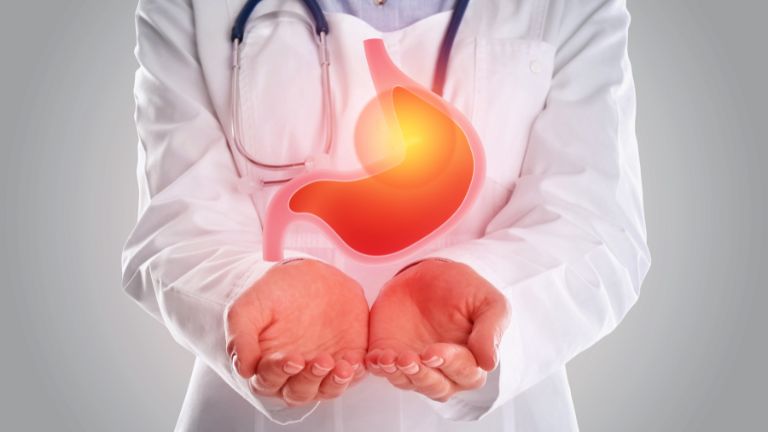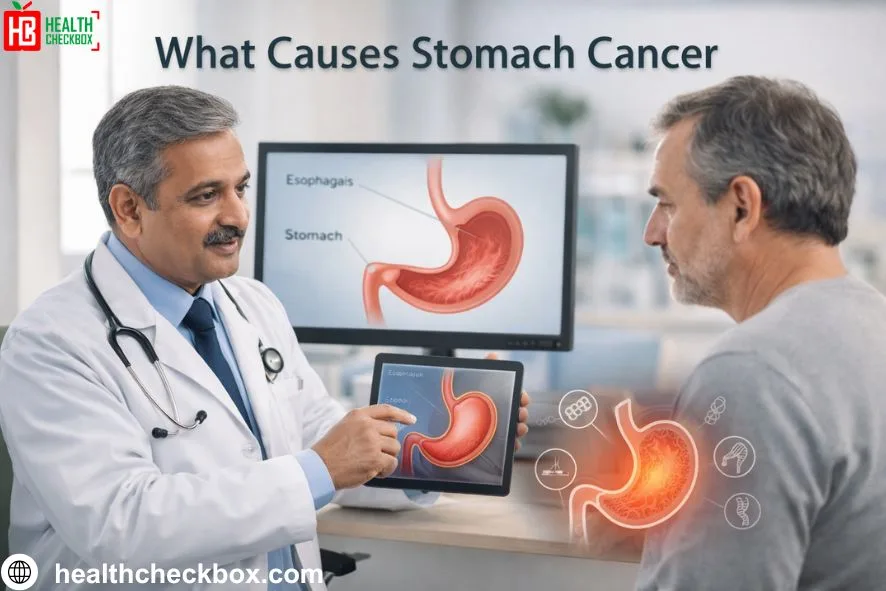Stomach cancer, also known as gastric cancer, starts in the cells of the stomach lining. Understanding what causes this type of cancer can help us prevent it. Several factors contribute to the risk of developing stomach cancer. Stomach cancer’s direct cause is unknown. There are various types of conditions where stomach cancer can occur. This disease can grow slowly over many years. It is most often seen in people who are in their late 60s and 80s.
It is the fifth most common cancer in worldwide. Males are diagnosed twice rather than females with stomach cancer. In addition, smoking and heavy drinking are linked to a higher chance of getting stomach cancer. Family history and genetic factors play a role too; if someone in your family has had it, your risk may be greater. By knowing these causes, we can take steps to reduce our risk and live healthier lives.
What is Stomach Cancer?
Stomach cancer, is also known as gastric cancer. It develops in the inner lining of your stomach. These cancer cells develop and grow deeper into your stomach walls. It can happen in any portion of the stomach but mainly occurs in the primary part of the stomach.
Stomach cancer begins 95% of the time, in stomach lining and slowly progress. It can grow deeper and make mass from (tumor) in the stomach. The tumor can outspread in the other parts of the body organs such as liver, pancreas etc.
Symptoms of Stomach Cancer

Signs and symptoms of stomach cancer may be:
- Abdominal pain
- Feeling bloated after eating
- Heartburn
- Trouble swallowing
- Indigestion
- Nausea
- Vomiting with or without blood
- Loss of appetite
- Black stools
- Feeling full stomach after eating small amount of food
- Feeling tired
- Not feeling hungry
Stomach Cancer Causes
Certain factors can cause of developing stomach cancer, include:
- Helicobacter pylori (H. pylori) infection.
- Gastritis
- History of stomach polyps or stomach ulcers
- Gastroesophageal reflux disease
- Drinking too much alcohol
- Obesity
- Family history of stomach cancer
- High diet of fatty, salty, smoked and pickled food
- Being overweight
- Epstein-Barr virus infection
- Smoking
How to Diagnose Stomach Cancer?
Stomach cancer can be diagnosed by some tests which includes:
- Blood test
- CT scan and MRI
- Biopsy
- Upper endoscopy
- Upper GI series test
- Endoscopic ultrasound
- Laparoscopy
Treatment
Treatment is depend on that how much cancer cells spread in stomach. Cancer and gastrointestinal specialist (gastroenterologist) can advise you these treatment options:
Surgery
In the surgical methods providers may remove the precancerous cells, a tumor, or all part of your stomach. In the early stages of cancer can be removed via an upper endoscopy where a gastroenterologist cuts the tumor from the stomach wall and removes it from the mouth.
Chemotherapy
In this method, it uses drugs to decrease the growth of spreading cancer cells which make it easier to remove cancer before surgery. It can kill the remaining cancer cells after surgery. It is commonly used in combination with radiation.
Radiation
Radiation targeted beams like X-rays which are used to destroy cancer cells. It isn’t effective alone to treat stomach cancer but it may be used with chemo before and after surgery. Using radiation can help to relieve its symptoms.
Immunotherapy
Immunotherapy helps the immune system to determine and destroy cancer cells that can be hard to find. This method is used in advanced and recurring cancer.
Precautions for Stomach Cancer
You can reduce the risk of stomach cancer if you:
- Consume a healthy diet everyday such as fresh fruits and vegetables
- Treat H. pylori infection, if you test positive
- Maintain an ideal weight
- Quit tobacco goods and smoking
- Treat gastritis, ulcers and other stomach conditions
- Avoid excessive alcohol consumption
- Treat Helicobacter pylori infection
Conclusion
Stomach cancer can not always be preventable, but it can be cured if it is in the early stage. It will depend upon cancer diagnosis healthcare provider which may recommend surgical procedure that remove cancer cells or tumors.
If you found any signs and symptoms of stomach cancer you should make an appointment with your doctor. Discuss with your healthcare provider that will suggest you better treatment options after proper examine.

